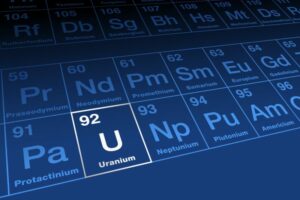
U.S. Rep. Bob Latta (R-OH) last week sponsored legislation that would require the U.S. Secretary of Energy to establish a Nuclear Fuel Security Program to increase the quantity of uranium produced by America’s nuclear energy companies.
“Over-reliance on other nations for nuclear fuel is a threat to our national security and our energy independence,” Rep. Latta said. “To avoid threats to our nuclear supply chain, we must build up our domestic uranium mining, production, enrichment and conversion, and support nuclear innovation right here at home.”
The Nuclear Fuel Security Act, H.R. 1086, is the companion bill to the same-named S. 452, which was introduced on Feb. 15 by U.S. Sens. Joe Manchin (D-WV) and John Barrasso (R-WY). Rep. Latta’s bill has gained six cosponsors, including U.S. Reps. John Joyce (R-PA) and Bill Johnson (R-OH), since its introduction.
If enacted, the measure also would authorize the Energy Secretary to expand the American Assured Fuel Supply Program to ensure the availability of domestically produced, converted, and enriched uranium in the event of a supply disruption, according to a bill summary provided by the congressman’s staff.
“After leading the world for decades in the development of nuclear energy, the United States has fallen behind its allies and rivals and has seen its competitive edge diminish,” said Rep. Latta. “This lack of investment has forced the U.S. to import 90 percent of the uranium fuel used in our nuclear reactors from foreign countries.
“The Nuclear Fuel Security Act will set us on the right path to strengthen our nuclear energy capabilities, lower carbon emissions, create new jobs, spur economic growth, and provide for a safer America,” he added.
Additionally, the bill would establish the HALEU [High-Assay, Low-Enriched Uranium] for the Advanced Nuclear Reactor Demonstration Projects Program, the summary says.
The program would aim to maximize the potential for the U.S. Energy Department to meet the needs and schedules of advanced nuclear reactor developers until such time that commercial enrichment and deconversion capability for HALEU exists in the U.S. at a scale sufficient to meet future needs and, where practicable, partner with countries that are allies or partners of the U.S. to meet those needs and schedules until that time, states the summary.



